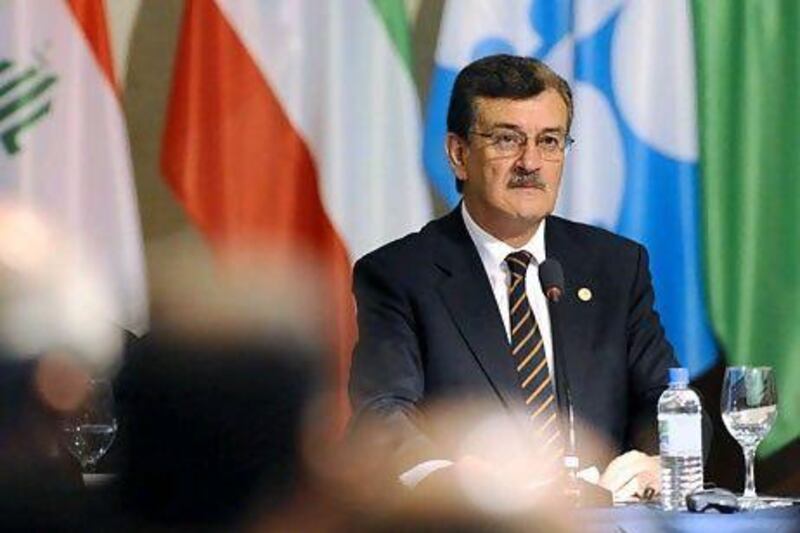There was once a Saudi, an Iranian, an Iraqi and an Ecuadorian. This is not a complicated joke, but instead, the line-up to be Opec's next secretary-general, succeeding the long-serving Libyan Abdullah El Badri.
The contest sheds interesting light on the emerging struggle that will define oil markets and Opec's own role over the next decade. It features the incumbent champion for Saudi Arabia (and its candidate Majid Al Moneef), the declining rival (Iran and Gholamhossein Nozari), the rising star (Iraq and Thamir Ghadhban) and the unexpected outsider (Ecuador and Wilson Pastor).
Interestingly, the real Opec heavyweights rarely provide the secretary-general.
Iraq has not filled the role since the thoughtful strategist Fadhil Chalabi in 1983-88; and Saudi Arabia and Iran have each only held the position once, as far back as the 1960s, when the organisation's role was very different. And there has never been an Emirati secretary-general.
Although the role is essentially technocratic, to inform the organisation's members rather than making policy, current tensions give this year's contest a heightened significance.
Iraq's oil minister described it as a "national mission to obtain this job for its importance". The Saudis will be reluctant to support an Iranian candidate, or an Iraqi whom they see as an ally of Tehran's, but this opposition will be repaid.
These internal politics are a pity, for there are certainly some impressive CVs on show. Mr Ghadhban was jailed briefly under Saddam Hussein for blaming the oil industry's cement shortages on excessive construction of statues of the dictator. He then had the Herculean job of Iraqi oil minister during the chaotic post-invasion years.
Mr Pastor, an experienced geologist and economist, was the natural resources minister during a controversial period of renegotiations with foreign companies. He has also sat on the other side of the table with Texaco's Ecuador unit.
The new secretary-general will also have to grapple with the difficult problem of what Opec is actually for. Unfortunately, often excellent market analysis becomes redundant in the face of the members' disparate interests. In its last report, Opec itself estimated Iranian production at just 3.2 million barrels per day (bpd), but Tehran claimed an increase to 3.8 million bpd.
It has been revealed repeatedly that at times of high oil prices, the organisation's mantra of stability is abandoned. The GCC members - Saudi Arabia, with the support of Kuwait and Abu Dhabi - are forced to act unilaterally to increase production, a move that Iran, Venezuela and Algeria consistently oppose.
The last Opec meeting finessed the issue by setting an overall production ceiling of 30 million bpd, but this remains rather meaningless until translated into shares per country.
Iran is producing well below its usual quota because of sanctions, the Saudis are happily making up the difference, and Iraq is likely to overtake Iran's output by next year. Opec is now 1.75 million bpd over its supposed limit.
Although this year Saudi Arabia has unsheathed the oil weapon in its support for sanctions against Iran, this is not the first time it has wielded its market power to threaten an opponent: it did so against the shah's Iran in 1976, against all its colleagues in 1986, against Venezuela in 1998.
Only once have Opec tensions gone beyond the diplomatic sphere, with Saddam Hussein's 1990 invasion of Kuwait.
So the organisation's main purpose has therefore become coordinating supply reductions in the time of crisis, as in September 2008. Until such an emergency arrives, the aim is to maintain relative civility so that cuts can be activated swiftly.
So the contest for secretary-general at Opec's meeting on Thursday is not a joke. The choice of winner will give some hints on backroom deals struck to preserve Opec's relative, although illusory, cohesion.
Robin Mills is the head of consulting at Manaar Energy, and the author of The Myth of the Oil Crisis and Capturing Carbon
twitter: Follow and share our breaking business news. Follow us
iPad users can follow our twitterfeed via Flipboard - just search for Ind_Insights on the app.





